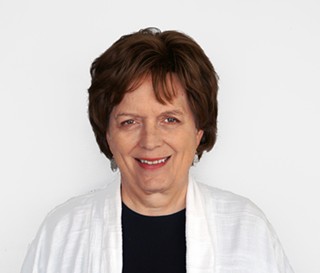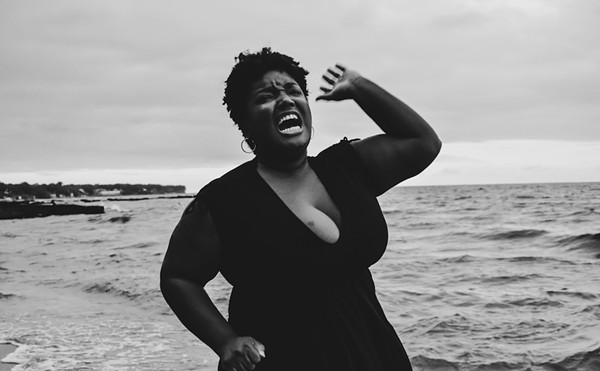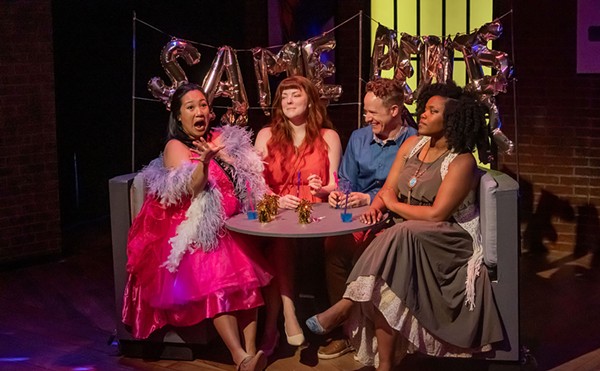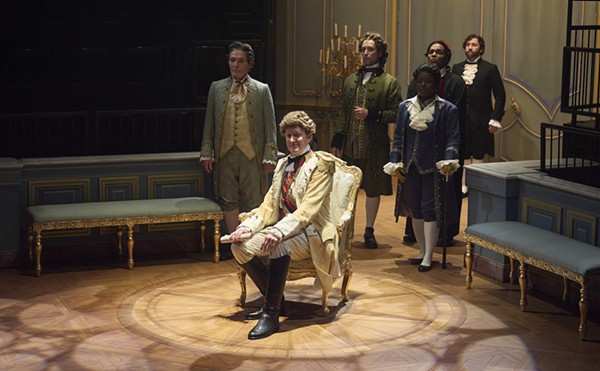In the Cesear's Forum production of Jean Anouilh's The Lark, now at Kennedy's Cabaret, Joan's brief bio is sketched out during the trial that eventually condemns her to a flaming death at age 19. Blending two adaptations of the original script by Christopher Fry and Lillian Hellman, director Greg Cesear attempts to capture a fresh perspective on the intersection of politics and morality -- not such an irrelevant issue right about now. Unfortunately, what's been created here is an oddly sterile, bloodless recitation of a story that should fairly pulse with glory and pain.
This courtroom drama is led by the Earl of Warwick, an English official who wants to get on with the barbecue, and Pierre Cauchon, a rigid and arrogant French bishop. Charged with the crimes of heresy and witchcraft (the only explanation for how a schoolgirl could lead an army of men to multiple victories), drag-king Joan is invited to recount her life story, between interrogations by church bigwigs. The play touches on the high points, such as the heavenly instructions that led her to enlist, her mystical first encounter with the Dauphin, and soaring battlefield triumphs that led her to be dubbed "a lark in the sky."
Joan's confounding qualities of insolent confidence and devout humility are portrayed convincingly by chisel-jawed Laura Borgione (even though this actor's adolescent years are disappearing rapidly in the rearview mirror). But the other key roles add little. Ron Newell is largely somnolent as Warwick, using a repetitious speaking rhythm that becomes tiresome, while Jeffrey Steven Allen's Cauchon lacks dramatic clarity, due to an oddly flat, affectless delivery. Brian Bowers is a nicely dissipated young Charles, and Michael G. Regnier stirs up a bit of ire as the Inquisitor in the second act, but by that time the audience has unpacked its marshmallows and is ready for the bonfire.
Considering the hot-button topics raised by Joan of Arc's story, it's mystifying that there isn't more passion in Cesear's production. Staged on a square catwalk-like platform, with an open space in the center where actors wait their turn, the performers are squeezed into static positions that make it difficult for them to interact or react spontaneously. As a result, much of the dialogue seems like isolated speeches set next to each other, rather than the ardent engagements of committed people. And that could burn anyone up.













